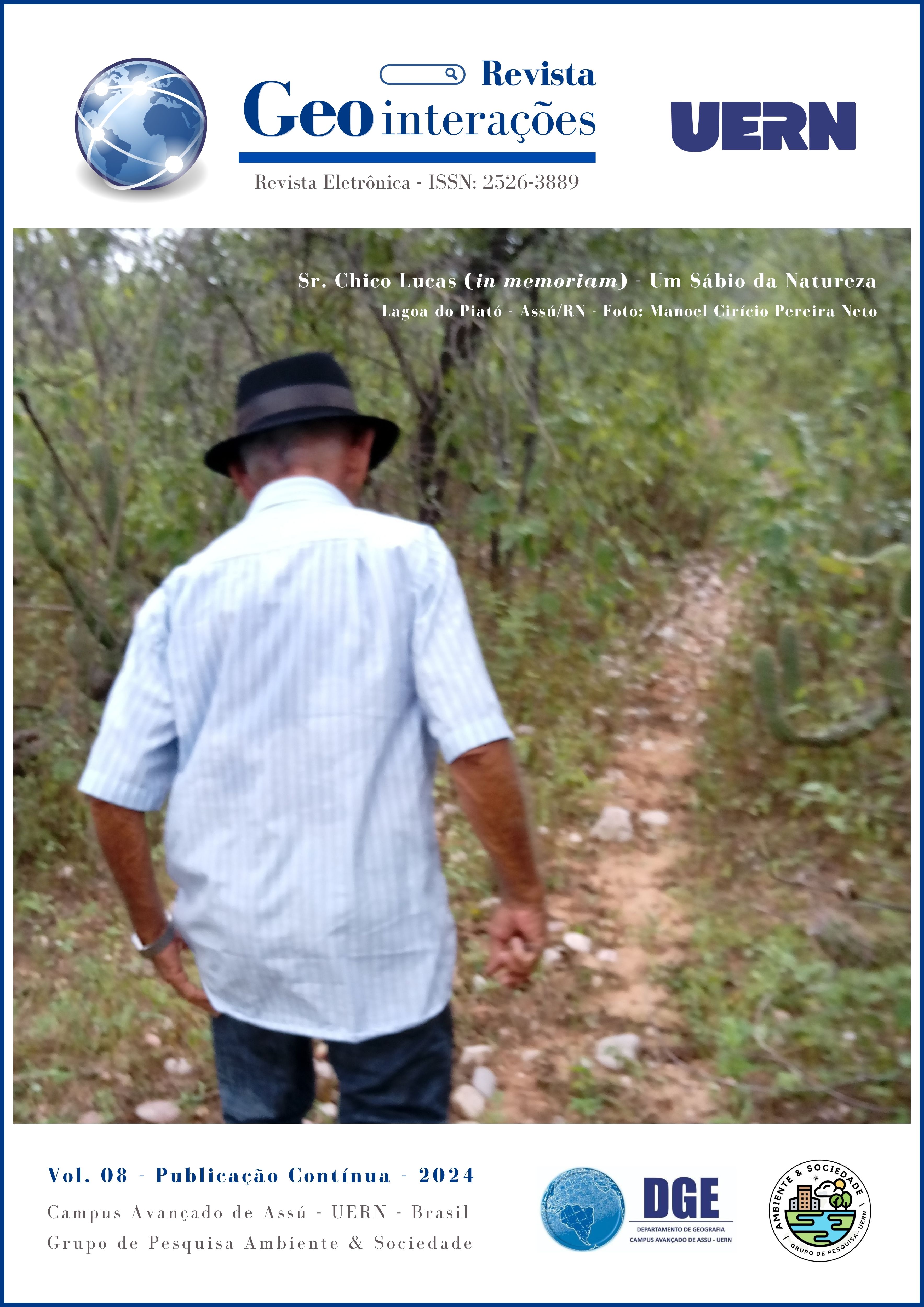ANÁLISE DA PRODUÇÃO, GESTÃO E GERENCIAMENTO DO LIXO URBANO NO BRASIL E SUAS REGIÕES (2009-2021)
DOI:
https://doi.org/10.59776/2526-3889.2024.5483Palavras-chave:
coleta seletiva, lixo, PNRS, reciclagemResumo
A geração crescente de lixo é um dos problemas ambientais que se constata em todo o mundo. No caso do Brasil, a quantidade de resíduos sólidos produzidos pela população cresce exponencialmente. A esse respeito, Calderoni (1998) e outros autores explicam que é preciso avançar na temática para ampliar a compreensão sobre as múltiplas dimensões do problema. Nesse sentido, o objetivo deste artigo foi analisar a evolução da produção do lixo, bem como a sua gestão no Brasil e suas regiões entre os anos de 2009 e 2021, abrangendo o período antes e depois da implantação da Política Nacional de Resíduos Sólidos (PNRS), em 2010. Para tanto, na metodologia, recorremos a revisão de parte da bibliografia que trata sobre o tema e a sistematização e análise dos dados secundários dos panoramas estatísticos anuais produzidos pela ABRELPE. Em linhas gerais, os resultados do estudo evidenciam que a situação do lixo está longe de se resolver, principalmente com relação a sua destinação final. Em 2021, mais da metade dos municípios do Brasil (50,7%), equivalente a 2.826 localidades, ainda faziam a destinação inadequada do lixo, sendo a situação mais grave nos municípios das regiões Norte (78,7%) e Nordeste (71,3%), seguidos pelos do Centro-Oeste (62,5%), Sudeste (46,8%) e Sul (10,1%). Além disso, constatou-se que a quantidade produzida de lixo continua crescendo anualmente no século XXI e o reaproveitamento está abaixo das metas estabelecidas após a promulgação da PNRS. Portanto, corroborando os achados da CGU (2023) e de Magera (2012), conclui-se que a reciclagem no Brasil está longe de ser universalizada. Tais evidências sinalizam para a necessidade de ampliação e aprimoramento das políticas governamentais implementadas, visando reduzir os impactos ambientais e ampliar os benefícios socioeconômicos da gestão e gerenciamento sustentável do lixo urbano no território brasileiro.
Downloads
Downloads
Publicado
Como Citar
Edição
Seção
Licença
Copyright (c) 2024 Revista GeoInterações

Este trabalho está licenciado sob uma licença Creative Commons Attribution-NonCommercial-NoDerivatives 4.0 International License.








